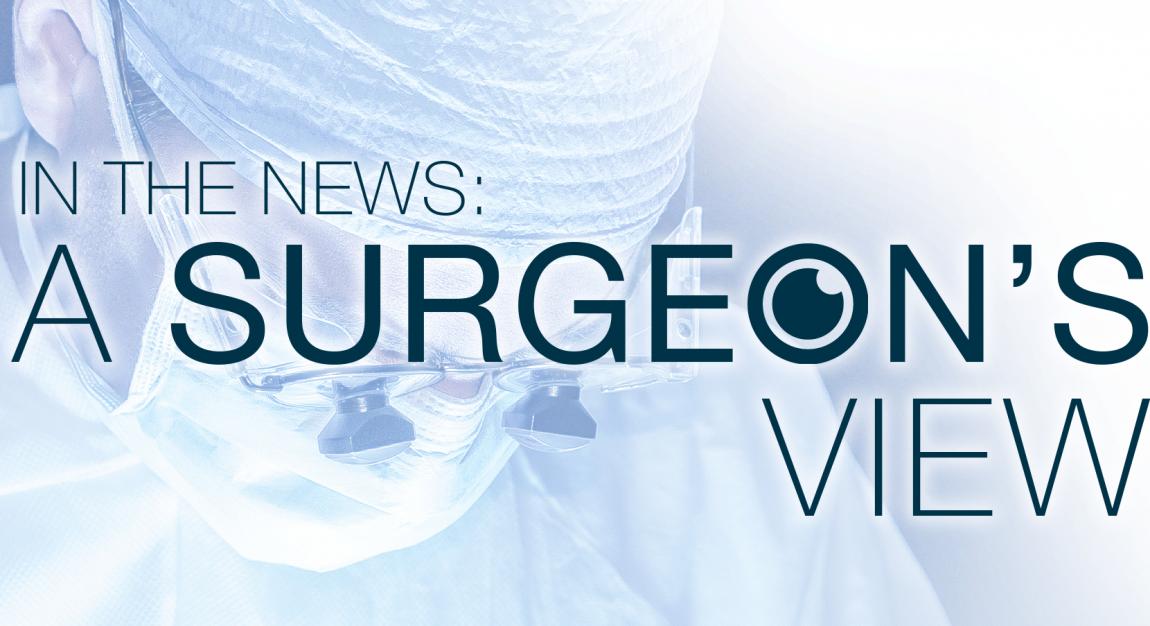- The effects of COVID-19 on physicians and other health care professionals, as well as hospitals and health systems, are deep and broad—from rescheduled elective surgeries and routine appointments to an influx of patients to limited availability of certain medical supplies and drugs.
- Cardiothoracic surgeons are among those who are navigating the growing impact of this crisis and embracing the changes, which are happening by the minute.
As the pandemic has spread and evolved, COVID-19 has created unique challenges for cardiac surgery patients and hospital systems. More than 4.1 million cases of COVID-19 and more than 283,000 deaths were reported globally as of May 11, 2020.
In Alabama, we have confirmed 9,900+ cases with 390+ deaths. The University of Alabama Hospital in Birmingham serves a large cardiac patient population throughout Alabama and portions of Mississippi, Florida, and Tennessee. Each year, we perform approximately 1,100 open cardiac operations and 500 structural heart interventions such as transcatheter aortic valve replacement (TAVR) and MitraClip procedures.
We have seen dramatic changes in our cardiac caseload, patient acuity, and staffing over the past 8 weeks. The COVID-19 pandemic poses additional risks to our cardiac patient population due to the correlation of advancing age, diabetes, hypertension, male gender, and obesity with cardiac disease. All of these risk factors place our patients at increased risk of morbidity and mortality from the novel coronavirus alone, and increase further following surgery.
In our geographic region in the South, we have significant additive concerns for rapid disease progression and high mortality in African American and underserved patients. We currently estimate that up to 70% of patients succumbing to COVID-19 in our geographic region are African American.
For patients with cardiac disease who may need certain procedures and/or surgery, it has been a very frightening time. Although patient experiences will vary depending on geographic location and hospital size, below is a synopsis of our experiences in Birmingham.
Surgery Triage System
With national recommendations from the Centers for Disease Control and Prevention and Centers for Medicare & Medicaid Services early in the pandemic, our state placed a mandatory quarantine order. In response, we established a surgery triage system and canceled elective operations in March. This rapidly tapered our usual hospital cardiac surgery volume of 40-to-50 cases per week to fewer than 10 cases per week throughout late March and early April. At the same time, we saw COVID cases surge and peak at our institution.
Personal Protective Equipment
The concern for availability of personal protective equipment (PPE) for health care workers and patients was well described, and PPE usage increased dramatically in the cardiac operating rooms with patients under COVID precautions. As COVID testing became more available with rapid turnover in our inpatient lab, we have been able to test all patients and symptomatic hospital employees, while also preserving PPE.

Blood Product Availability
Because of a decrease in blood donations, blood product availability also has been significantly affected. We began an aggressive screening and triage process by blood bank staff and attending surgeons that was conducted before initiating transfusion of blood, fresh frozen plasma, cryoprecipitate, and platelets. We fortunately have not faced a critical situation with blood products and have been able to transfuse patients who met criteria for products.
Patients and Their Visitors
Since our hospital system was following state mandates, we were unable to allow any visitation from patient’s families for the first 6 weeks of mandatory quarantine. Patients undergoing operations during the COVID surge and peak were critical and unable to discharge prior to correction of their disease process. Physicians and nurses were able to keep in close contact with family members during the entire hospitalization by using FaceTime and other web- and smartphone-based applications.
We are extremely concerned about patients waiting at home with progressive symptoms, such as shortness of breath and/or heart failure, during the quarantine.
Dr. Sara Pereira
More Elective Surgeries in May
As hospital COVID cases decreased and we entered the plateau stage in mid-April, we began to perform more operations on semi-urgent outpatients and less critical inpatients. We hope to begin scheduling elective outpatient cases sometime in May and will continue to closely monitor availability of healthy staff, PPE, blood product, and bed availability.
Delayed Care and Disease Progression
Despite our efforts to appropriately triage patients and cases, many of our patients who were waiting for surgery in March and early April have been admitted to the hospital with exacerbation of symptoms and progression of disease process. We are extremely concerned about patients waiting at home with progressive symptoms, such as shortness of breath and/or heart failure, during the quarantine. With our cardiology colleagues, we also have seen a significant decrease in semi-elective and preoperative cardiac procedures, such as cardiac stress testing and catheterizations. Patients and family members have been scared to come to the hospital emergency departments and clinics with symptoms. We have therefore experienced an increased acuity and STS risk score for operations performed over the past 6 to 8 weeks and anticipate an increase in postoperative morbidity and mortality.
Renewed Role for Telemedicine
Many inpatient rehabilitation centers and outpatient cardiac rehabilitation programs have been closed in our region, and many patients have relied on family assistance and telephone follow-up postoperatively. We have discharged all possible patients with home nursing and physical and occupational therapies. All of our discharge instructions are now available via video for patients and families to watch prior to discharge. We also have performed more frequent telephone and video visits with outpatients after discharge to ensure their safely and positive progress at home.

The COVID-19 pandemic has created a rapid institution and adoption of telemedicine visits for our institution. With the evolution of “work from home” orders and diminished clinic and administrative staffing, we have relied on weekly patient telephone follow up for canceled cases and video visits for new and follow-up patients. More than 80% of new patient clinic visits and postoperative follow ups were performed via telephone and video early in the pandemic. We reserved in-patient clinic visits for patients who screened COVID negative and needed to be evaluated in person with labs, radiographs, CT scans, and potential readmission to the hospital. This has been a favorable aspect of the pandemic, and patients have really appreciated the ability to see their physicians and care providers from their homes for advice and follow up. We hope to bring every postoperative patient back to clinic for in-person follow up in coming weeks.
Continued COVID Testing
It is important to note that all patients in the hospital are now tested for COVID. We have tested all outpatients 24 to 48 hours prior to admission and operation and have tested all inpatients on admission from the emergency department or transfer to our hospital. The majority of outpatients have not desired to schedule operations until their family members are allowed in the hospital.
As the state begins to open semi-essential businesses, we plan to allow one visitor per patient starting in mid-May. We do not foresee that our institution will open up visitation policies to allow more than one visitor per patient for at least 2 to 3 more months. At that time, we hope that our patients will feel safe to schedule their operations and come to the hospital. With allowance of one visitor per patient, we will screen all incoming visitors with COVID and temperature checks before admittance. All persons entering the hospital also must wear masks.
A New Normal
The COVID-19 pandemic has affected cardiac surgery patients and programs in many unique ways—the increased acuity of cases, need for blood transfusions, limited hospital resources, and variable staff availability. It has been a very stressful time for patients to undergo procedures and surgery while their family members were at home. However, we believe that patients have received exceptional care and attention during this crisis.
As we navigate through our backlog of postponed cases from March and April, we hope that patients will feel safe to come in and have their procedures and operations performed. It is possible that many programs will be overwhelmed with scheduling echocardiograms, CT scans, stress tests, and cardiac catheterizations that have been cancelled during the early weeks of COVID-19. Although we believe that the pandemic will continue to affect patient care, hospital systems, and communities for the unforeseeable future, it is imperative that we continue to monitor patient and staff safety, provide for our patients, and embrace the changes in the health care system.
Sara J. Pereira, MD, is an Associate Professor of Surgery at the University of Alabama at Birmingham (UAB), School of Medicine. Her areas of interest include adult cardiac surgery, reoperative cardiac surgery, valve surgery, minimally invasive cardiac surgery. Dr. Pereira also specializes in transcatheter valve replacement (TAVR) and is an active member of the UAB Structural Heart and Valve Program.
